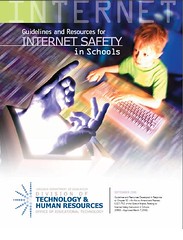As I have pointed out here many times before, education is a vital part of online child protection efforts. In fact, if there is one point I try to get across in my report on “Parental Controls and Online Child Safety,†it is that, regardless of how robust they might be today, technical parental control tools are no substitute for education, media literacy and online safety awareness training. To the extent lawmakers feel the need to "do something" about online safety issues, education-based efforts will bear much more fruit than regulatory initiatives.

Unfortunately, it is clear that not nearly enough media literacy or online safety instruction is being done within America’s educational process at any level. For the most part, media literacy is not routinely integrated into the curricula at elementary school, secondary school, high school, or college. This situation must be reversed. Luckily, my home state of Virginia is helping to pave the way. This weekend, the Washington Post ran a front-page story entitled, "Virginia Tries to Ensure Students' Safety in Cyberspace," that discussed the state's effort to "launch Internet safety lessons across all grade levels, responding to a state mandate that is the first of its kind in the nation." The text of the enabling legislation can be found here and, in September 2006, Virginia produced an outstanding report entitled “Guidelines and Resources for Internet Safety in Schools†that can serve as model legislation for other states.
The Post story summarizes the focus of the program:
In Virginia, local school systems have been rewriting policies, running pilot programs and putting final touches on lesson plans to be ofd from kindergarten through 12th grade starting in September. "One of the things we realized is there is no one-size-fits-all approach," said Tammy McGraw, the Virginia Department of Education's director of educational technology. "Ultimately what we're trying to do is ensure we have safe and responsible Internet users."
The state's goal is to integrate safety skills into the curriculum, not simply teach them in one lesson. An English lesson on truth and fiction, for example, could require a paper on what information online should be trusted. "It's not something that we think can really be addressed by bringing children together in an assembly," McGraw said. "We think they have to think about it all the time."
[...]
The state initiative calls for including parents. One chapter in a state resource book covers "What Parents, Grandparents, and Caregivers Need to Know." In Arlington, some Parent-Teacher Association chapters have heard public service announcements on the subject.
State and local officials need to follow the road map outlined by Virginia and begin integrating media literacy and Internet safety lessons into educational curricula at every level. The Post story mentioned that Texas and Illinois also recently passed laws to promote Internet safety lessons in the schools. Librarians need to be trained to play a role, too. And funding needs to be provided for all those efforts.
I would rather see governments spending their money wisely like this to fund educational lessons that will last a lifetime, as opposed to spending that money in the courts litigating misguided regulatory initiatives that will eventually be struck down as unconstitutional. posted by Adam Thierer @ 10:26 AM |
Free Speech
, Online Safety & Parental Controls
Link to this Entry | Printer-Friendly
|
